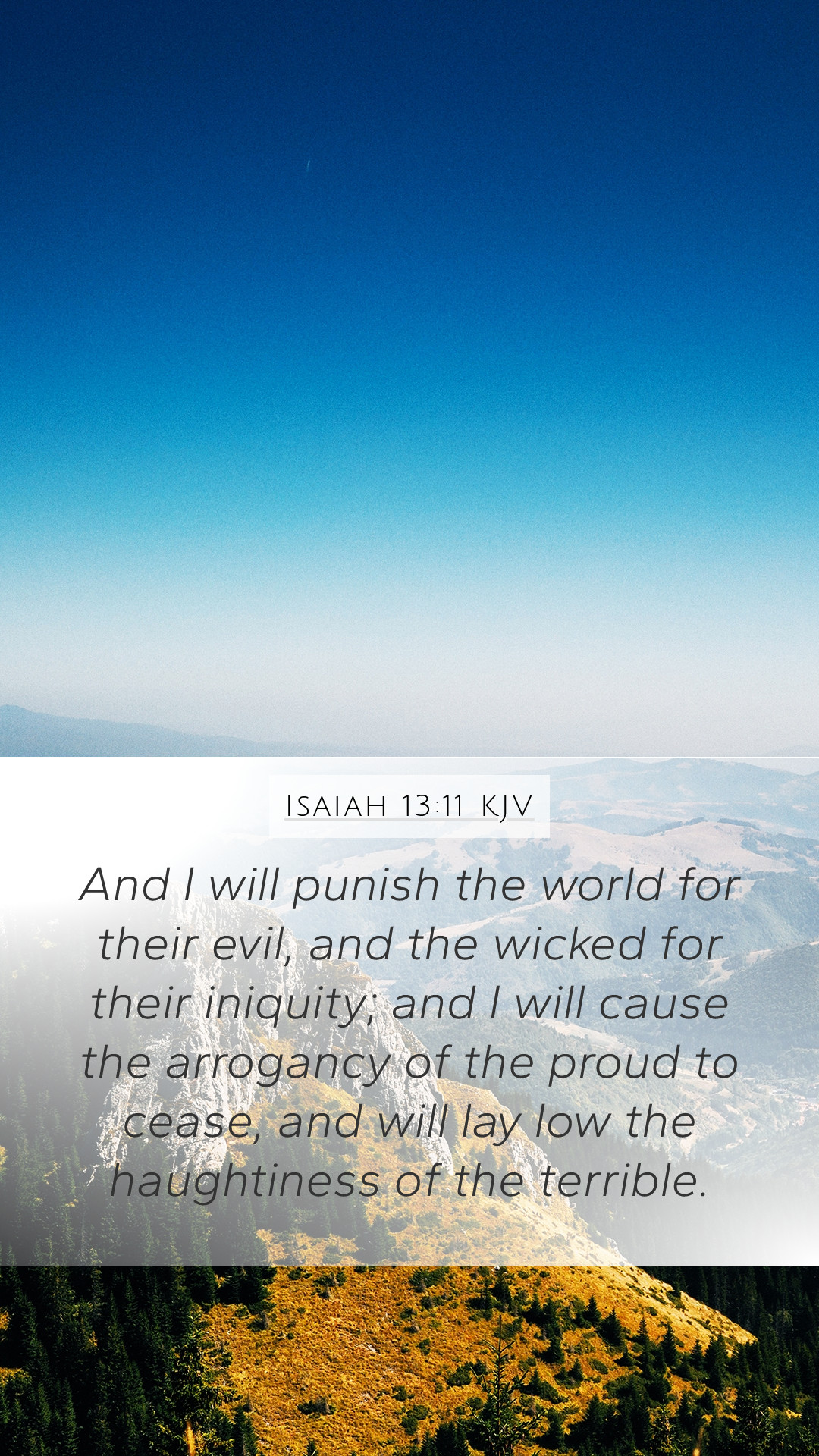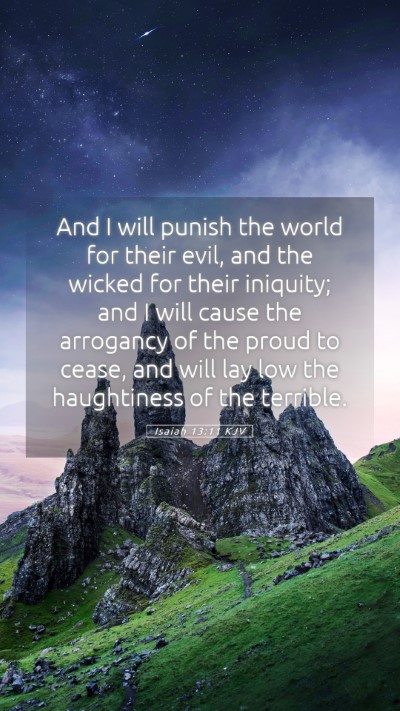Understanding Isaiah 13:11
Isaiah 13:11 states:
"And I will punish the world for its evil, and the wicked for their iniquity; I will put an end to the arrogance of the haughty and will lay low the pride of the ruthless."
Overview and Context
This verse is part of a prophetic message concerning the impending judgment of God upon Babylon and, by extension, the world. Understanding this verse requires a grasp of its historical context, the nature of God's justice, and the overarching theme of divine retribution found throughout the Scriptures.
Bible Verse Meaning
The interpretation of Isaiah 13:11 highlights several key themes:
- Divine Judgment: This verse clearly articulates God's intent to judge the wickedness of the world and individuals.
- Human Arrogance: The reference to "the arrogance of the haughty" signifies a warning against pride and self-sufficiency.
- Moral Order: God is presented as a moral governor who will not allow evil to go unpunished.
Insights from Public Domain Commentaries
Matthew Henry's Commentary
Matthew Henry emphasizes that the punishment mentioned in this verse is not arbitrary but is a reflection of God’s righteousness. He discusses how God’s judgments are aimed at both the systemic injustice found in nations and the personal iniquity of individuals. Henry notes that this verse serves to instill a fear of God’s righteous retribution that should lead to repentance.
Albert Barnes' Commentary
Albert Barnes interprets this verse as a prophetic assurance that God's justice will ultimately prevail. He states that the “world” refers to all nations and that the verse reveals God's displeasure with both social and personal sin. Barnes remarks on the significance of humility, pointing out that pride often precedes downfall, aligning with various teachings of humility across the Scriptures.
Adam Clarke's Commentary
Adam Clarke provides an in-depth analysis of the phrase "I will lay low the pride of the ruthless." He explains that this can be viewed as a direct warning to those in positions of power who abuse their authority. Clarke articulates the idea that the prophecy is not limited to Babylon, but encompasses a broader theme of divine justice applicable to all who engage in unrighteousness.
Cross References
- Proverbs 11:2: "When pride comes, then comes disgrace, but with humility comes wisdom."
- Isaiah 2:12: "For the Lord of hosts has a day against all that is proud and lofty, against all that is lifted up—and it shall be brought low."
- Psalm 75:7: "But it is God who executes judgment, putting down one and lifting up another."
Application of Isaiah 13:11 in Bible Study
This verse invites profound reflection on multiple levels:
- In Personal Life: Individuals are encouraged to assess their attitudes and behaviors regarding pride, reflecting on the potential repercussions of arrogance.
- In Group Settings: Bible study groups can explore themes of justice and judgment in the context of modern society, fostering discussions about moral accountability.
- In Theological Discussions: Understanding the implications of divine retribution can lead to enriching debates on grace, mercy, and the nature of God's judgment.
Conclusion
Isaiah 13:11 serves as a powerful reminder of the ultimate sovereignty of God over nations and individuals alike. The insights from prominent biblical commentators enrich our understanding of the verse, emphasizing God's justice, the danger of pride, and the moral necessity of accountability. In a world that often prioritizes self-promotion, this verse becomes a clarion call for humility and righteousness.
Further Study Suggestions
For those seeking to delve deeper into the meaning of Bible verses, resources such as online Bible study tools, courses, and guides can be invaluable. Consider exploring topics related to divine justice, the nature of evil, and prophetic literature to gain further insight into the theological implications of Isaiah 13:11.


